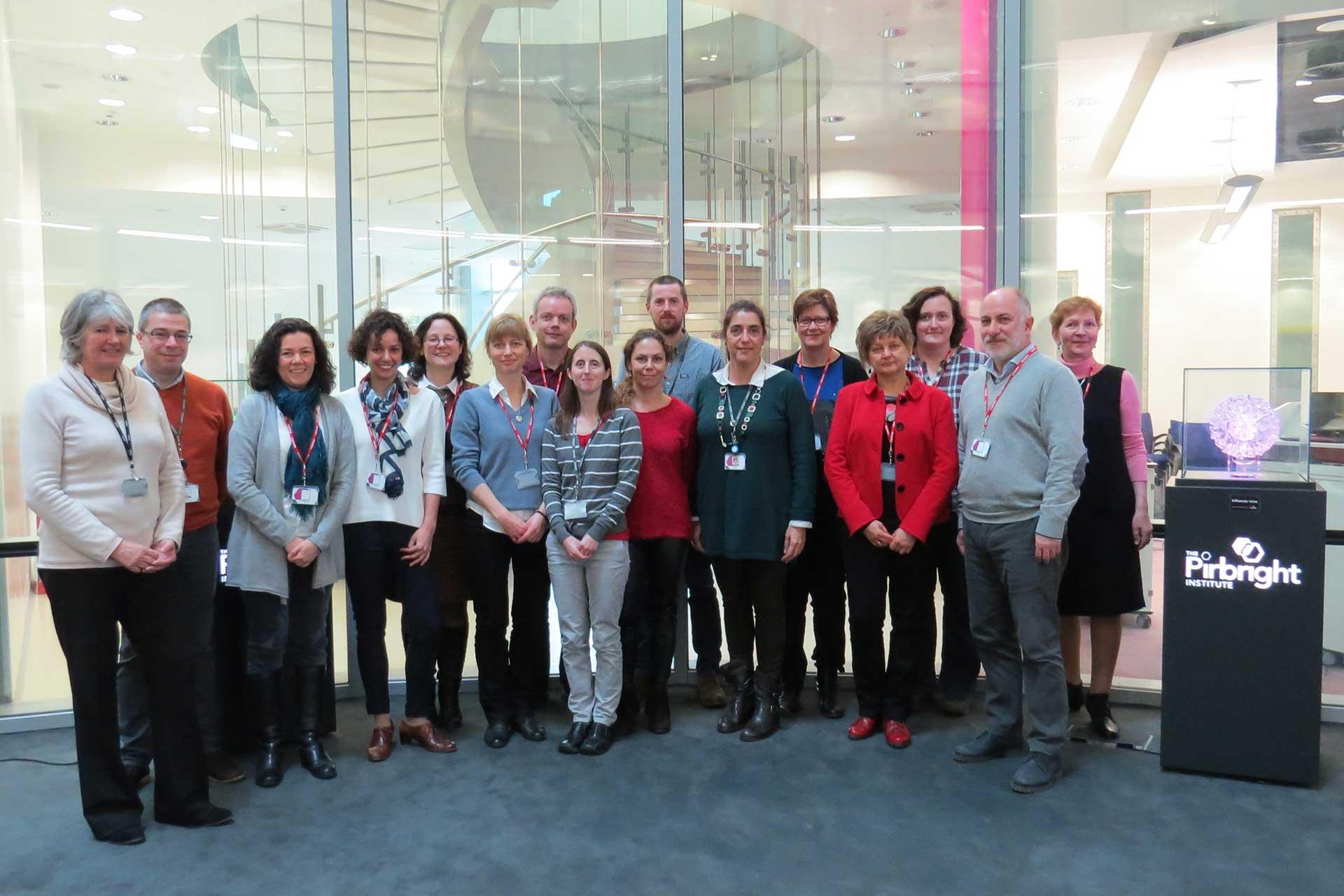Leading researchers from The Pirbright Institute have joined with other European scientists to share knowledge and expertise as part of an international collaboration to prevent the spread of African swine fever (ASF).
The Institute recently hosted an international workshop as part of its support for ASF-STOP Cost Action - a network launched in 2016 to tackle ASF and funded by the European Cooperation in Science and Technology (COST). The network brings together teams of European ASF experts who are sharing their expertise to improve understanding, diagnosis, surveillance and management of the disease. The collaboration will help identify knowledge gaps and limit duplication in research.
ASF is a highly infectious viral disease of domestic pigs and wild boar which is devastating for small farmers and the livestock and food industry, due to the high mortality rates (up to 100%) and the trade restrictions in live animals and pork products from affected countries. Additional animal losses are also incurred because of the need to control outbreaks through culling.
There is no vaccine available for ASF virus (ASFV) and since entering the EU in 2014, it has spread into Russia and Eastern Europe; facilitated by the wild boar populations that roam freely and can easily infect domestic pigs – especially those on smallholdings.
The Pirbright workshop focussed on ASFV diagnostics and examined how eastern European countries could tackle the spread of ASFV in their region. It was led by Dr Maria Montoya, head of the Institute’s ASF Virus Immunology Group, and attended by experts from the reference laboratories of 11 different countries – including scientists from the Institute’s own reference laboratories.
Dr Montoya is leading the ASF-STOP working group that is reviewing the current knowledge held about ASFV by virologists, diagnosticians and vaccinologists across Europe, and is supported by fellow Pirbright ASF expert, Dr Linda Dixon. Dr Montoya said, “This workshop was a valuable opportunity to review the existing knowledge we have and explore how we can improve diagnostics to support the fight against this devastating disease.
“Pirbright has over 50 years of experience researching ASF so it is extremely important that we use this expertise. Our national and OIE (World Organisation for Animal Health) reference labs also play a crucial role in helping control the spread of ASF by ensuring the rapid diagnosis of disease outbreaks.
“There is currently a low risk of an ASF outbreak in the UK, but gathering the views and experiences of reference laboratory experts from across Europe is vital in learning what problems are faced in countries where the disease is prevalent, such as Lithuania, Latvia, Poland and Russia. These problems can then be addressed together with input from experts in ASF-free countries like the UK”.
The output and conclusions from the ASF-STOP network’s various working groups will be published on its website, and outcomes will help to inform and improve existing strategies to control and prevent ASF.
